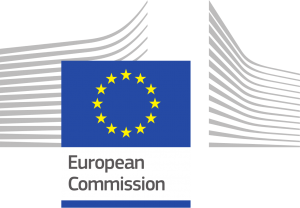 Eurodiaconia has produced a briefing with key points for the transposition of Directive 2014/24/EU on Public Procurement. The goal of this guide is to offer key messages that support Eurodiaconia members’ advocacy work targeted at their respective national governments during the transposition phase. Member States have until April 2016 to transpose the new rules into their national law.
Eurodiaconia has produced a briefing with key points for the transposition of Directive 2014/24/EU on Public Procurement. The goal of this guide is to offer key messages that support Eurodiaconia members’ advocacy work targeted at their respective national governments during the transposition phase. Member States have until April 2016 to transpose the new rules into their national law.
Eurodiaconia’s overall assessment of the Directive is positive but the text leaves room for interpretation in several key provisions which are relevant for a qualitable delivery of social services. Therefore, the messages contained in the guide concentrate on these discretionary provisions contained in the Directive and on which national governments have the last word.
These are some of the key messages that Eurodiaconia members should convey to national authorities to ensure a positive transposition of the Directive:
- Procurement is only one among different possibilities to deliver social services. Stable forms of cooperation between public authorities and non-profit providers of public services still have to be considered as valid options by contracting agents.
- Member States must embrace fully the option to reserve contracts for the provision of health and social services to social enterprises.
- Transposed legislation should allow public authorities to introduce social criteria at the different stages of the procurement procedure.
- National legislation should emphasize that contracting authorities have every right to define the quality conditions of services procured. Quality could be incorporated in the best price-quality ratio assessment of bids, which is one of the alternatives to identify the ‘most economically advantageous tender’.
- The importance of quality for services to the person should be reflected in procurement procedures accordingly. Discretion allowed to Member States should be interpreted as an opportunity to use the voluntary European Quality Framework for Social Services as a guiding principle to design quality requirements in this type of services. The quality of staff employed to perform procured services is particularly relevant to ensure a qualitable delivery of services.
- The notion of best value for money, which is mainstreamed across the Directive, should mean that quality and sustainability criteria are integrated, as a rule, into the price assessment of bids.
- In as much as the adoption of such criteria is voluntary, there is a risk that transposition gives way to awarding contracts on the basis of price or cost only. As a general rule, transposed legislation must avoid this.
The briefing also contains information on progress made on transposition in each country. Updates and further information on specific countries as the transposition phase advances are most welcome, please contact alexander.elu@eurodiaconia.org.
To access the full document, please click here.